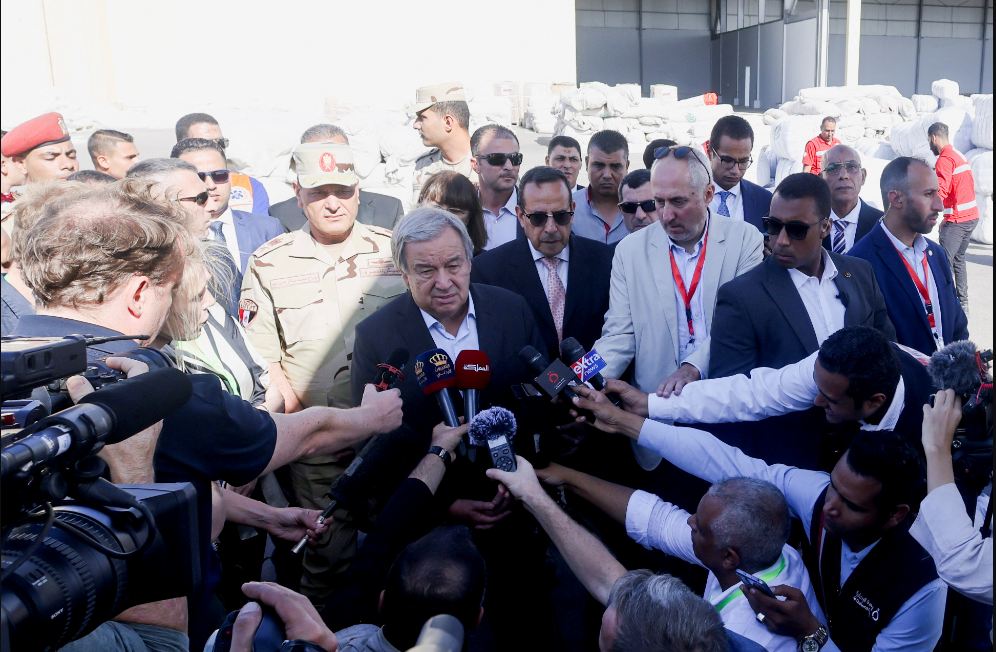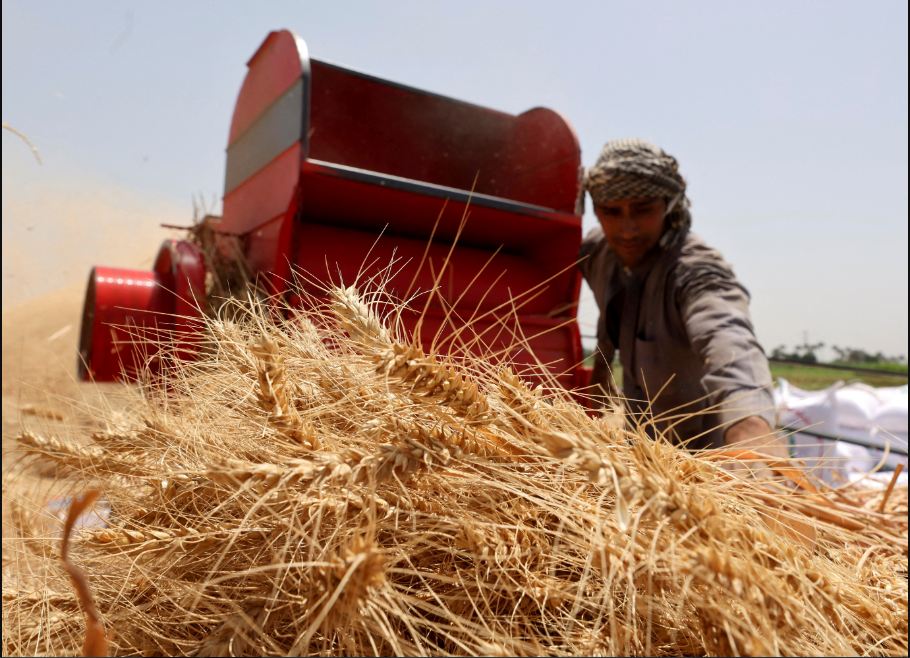U.N. chief pleads for Gaza lifeline at Egypt border crossing
Rafah (Reuters) – U.N. Secretary-General Antonio Guterres used a visit to Egypt’s crossing with the Gaza Strip on Friday to make an emotional appeal for aid trucks to move into the besieged enclave, days after the U.S. raised hopes of a diplomatic breakthrough.
Standing at the Rafah Crossing in the Sinai Peninsula, where more than 200 aid trucks are waiting and much more relief is stockpiled, Guterres described the delay in delivering food, water, medicines and fuel to those in need as heartbreaking.
“These trucks are not just trucks – they are a lifeline, they are the difference between life and death to many people in Gaza,” he said, as hundreds of people including truck drivers and aid volunteers chanted pro-Palestinian slogans and waved banners around him.
“To see them stuck here makes me very clear – what we need is to make them move, to make them move to the other side of this wall, to make them move as quickly as possible and as many as possible.”
Rafah has remained shut since shortly after Israel began its bombing of Gaza in retaliation for a deadly assault by the Hamas militant group on Oct. 7, and wrangling over conditions for delivering the aid has prevented its reopening.
Conditions include Israeli demands for a mechanism to inspect the aid, while Western states have been pushing to evacuate foreign passport holders from Gaza.
Guterres, dressed in a dark suit under the desert sun, called for a swift system of verification of the aid shipments.
“We are now actively engaging with all the parties, actively engaging with Egypt, with Israel, with the U.S., in order to make sure that we are able to clarify those conditions, that we are able to limit those restrictions,” he said.
Following a trip to Israel on Wednesday, U.S. President Joe Biden said agreement had been reached for 20 aid trucks to cross through Rafah. On Friday, he said he believed those first trucks would pass through within 48 hours.
That would only be a fraction of what is required. Before the outbreak of conflict, an average of about 450 aid trucks were arriving there daily. U.N. officials say at least 100 trucks daily are needed to cover urgent needs and that any aid operation must be sustainable at scale.
Most of Gaza’s 2.3 million people depend on humanitarian aid. The coastal enclave has been under a blockade imposed by Israel and Egypt since Hamas took control of it in 2007.
“Talking about 20 trucks only is a Zionist-American attempt to throw dust in the eyes, and is misleading to the public opinion about resolving the catastrophic humanitarian crisis in Gaza,” Hamas said in a statement.
In Geneva, Jens Laerke, spokesperson for the U.N. Office for the Coordination of Humanitarian Affairs (OCHA), said Gaza was in dire need of water, food, fuel and medical supplies.
DAMAGED ROADS
Rafah is the only crossing with Gaza for goods and people that does not border Israel. Roads at the crossing and leading into Gaza are being repaired after being hit by bombardments in the past two weeks.
During previous conflicts, aid had been delivered to Gaza during humanitarian pauses through the Kerem Shalom crossing, which is controlled by Israel.
But Israel has said it will allow no aid to enter from its territory until Hamas releases the hostages it took during its Oct. 7 attack, and that aid can enter through Egypt as long as it does not end up in the hands of Hamas.
Guterres said humanitarian access should never be made into a “bargaining chip”, and should be treated separately to the evacuation of foreigners and release of hostages.
Egypt said it was not responsible for the closure of the crossing, blaming it on Israel. Cairo has also spoken out against any mass displacement of Gazans into Sinai, reflecting Arab fears that Palestinians could again flee or be forced from their homes en masse, as they were during the war surrounding Israel’s creation.
A further concern for Cairo is security in northeastern Sinai, where it faced an Islamist insurgency a decade ago, and by the risk of any spillover from Gaza.
About 1,400 Israelis were killed in the initial Hamas assault, the bloodiest single day in the state’s 75-year history. At least 3,800 Palestinians have been killed in the Israeli strikes. Most of the dead on both sides were civilians.



